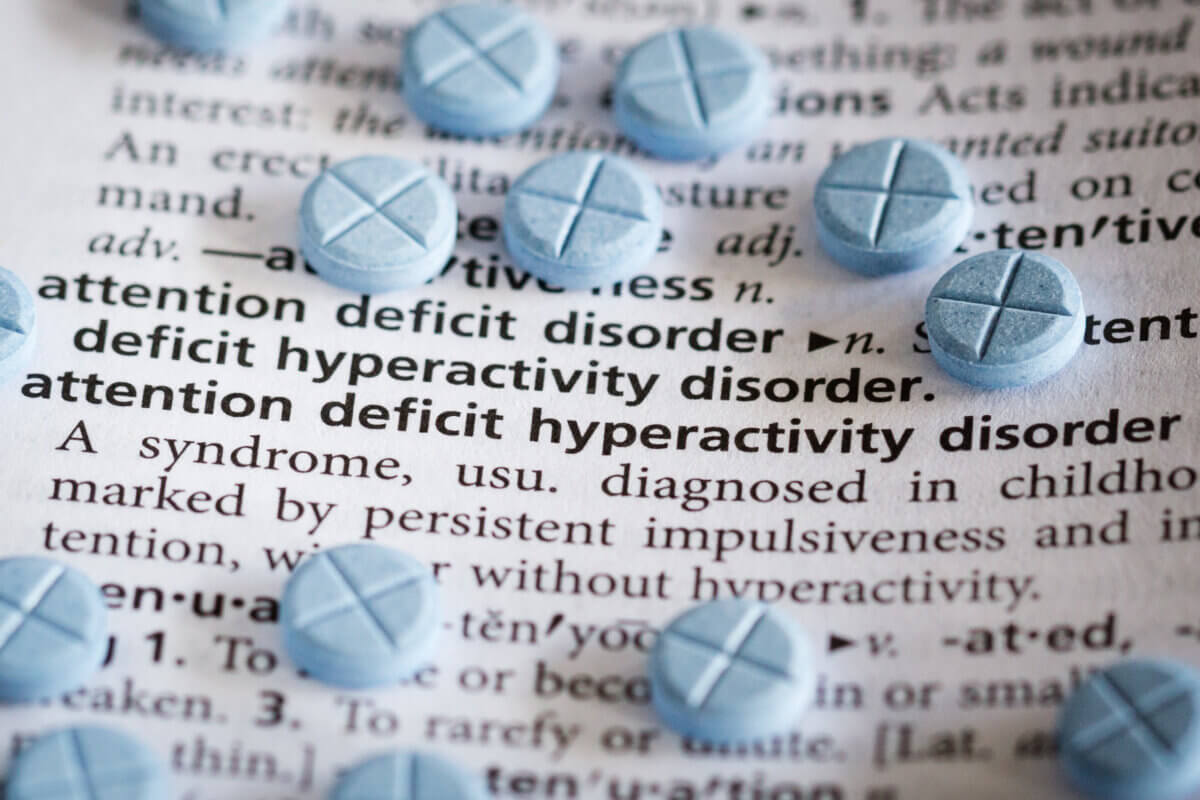ÖREBRO, Sweden — Attention deficit hyperactivity disorder (ADHD), characterized by symptoms including difficulty concentrating, hyperactivity, and impulsivity, has a reputation of being an issue exclusive to children. While it’s certainly true that ADHD ranks among the most common mental disorders among children today, kids are far from the only ones prone to it. In fact, a new study finds people over 50 may be just as likely to have ADHD.
Plenty of adults live and cope with ADHD symptoms on a day-to-day basis as well, and many aren’t even aware of their condition. Now, researchers in Sweden are warning that doctors all over the world are in urgent need of updated and improved recommendations regarding how to approach ADHD diagnoses, treatments, and medications in older adults. More specifically, those older than 50.
The research team at the University of Orebro says their latest work highlights a “striking gap” in ADHD knowledge when it comes to older people. Study authors explain all existing guidelines focus on kids and young adults only.
“Our analysis concludes that better approaches are urgently required to screen and diagnose people aged from around age 50 to 55,” says lead author Dr. Maja Dobrosavljevic from the University of Orebro, in a media release.
“As we gain deeper insights into the challenges faced by older adults living with ADHD, a comprehensive and tailored approach is crucial for their well-being. We therefore urge the medical community, researchers, and policymakers to collaborate in refining diagnostic criteria, treatment guidelines, and research initiatives that are inclusive of all age groups affected by ADHD.”
Believed to run in families, ADHD is usually diagnosed early in life, often as a result of problems or learning difficulties in the classroom. Estimates show that about eight percent of U.S. children have ADHD. That statistic is much lower for American adults (around 2.5%). Typical symptoms include impulsivity, lowered focus, attention issues, and poor organizational skills.
Left untreated, ADHD can have a major impact on one’s life throughout adolescence and adulthood, negatively influencing key developments like education, job prospects, and social interactions. Regarding medications, stimulants like methylphenidate are the most commonly-used medications for ADHD.
The research team, made up of world-leading experts on this pressing global issue, featured Chair of the European ADHD Guidelines Group Samuele Cortese, who is a Professor of Child and Adolescent Psychiatry at the University of Southampton, and Henrik Larsson, a Professor of psychiatric epidemiology at Orebro University.

Researchers analyzed close to 100 prior projects. Among those, 44 reported specifically on the prevalence, health outcomes, diagnosis, treatment efficacy and safety, and any clinical guidelines or consensus statements providing recommendations on clinical diagnosis and treatment of ADHD among older people.
Next, the study authors assessed the current diagnostic criteria per the Diagnostic and Statistical Manual of Mental Disorders (DSM) and the World Health Organization’s International Classification of Diseases (ICD). Additional factors were also considered, such as the usefulness of current criteria when diagnosing older adults.
“Doctors should be assessing the physical health of an older person with ADHD before prescribing drug treatment. Diagnostic criteria have shifted towards a ‘wider inclusion’ of adults who previously would have remained undiagnosed,” Prof. Larsson adds.
“Yet, still, there is no specific consideration of how ADHD presents in older adults. Another issue is that screening tools validated for ADHD in older adults are not specific enough to recognize the condition in the over 50s. Only those with the most severe ADHD would be picked up.”
This analysis also adds further weight to recent indications that ADHD is associated with mental health issues, increased death rates, and illnesses including dementia and cardiovascular disease. Still, actually diagnosing older adults with ADHD remains a problem area.
Researchers note another key ADHD challenge facing clinicians treating patients over 50 — certain medical conditions common in older adults have very similar clinical symptoms as ADHD, such as menopause-related memory decline, just to name one example.
So, study authors recommend that doctors look for distinctive clues that will distinguish ADHD from age-related mild cognitive impairment (MCI). For instance, many ADHD patients report childhood symptoms whereas MCI has a more abrupt onset later on in life.
It’s also important to note that future editions of the DSM and ICD are indeed expected to address the current knowledge gaps in reference to ADHD among older adults. The research team suggests that any future classification for older adults with ADHD should explicitly differentiate between ADHD and conditions with similar symptoms.
The study is published in the journal Expert Review of Neurotherapeutics.
You might also be interested in:
- Childhood overdose crisis: ADHD medication errors have skyrocketed 300% since 2000
- ‘Very hopeful message’: 2 in 5 adults with ADHD enjoy ‘excellent mental health’
- Having ADHD in adulthood strongly linked to development of anxiety, depression


It used to be called (in the good old days) ‘being bored out of your tiny mind’.
Crappy teaching of morons in a class of 30 left the smart kids ‘bored out of their tiny minds’, but instead of blaming the teachers and the system, we blamed the kids, and gave them drugs.
As you get older (and leave schools and universities) you get more choices. It is almost impossible to be bored whilst writing computer code, waiting tables and washing dishes not so difficult.
Smart people when they retire have suddenly got few problems to face each day, unsurprisingly they get bored out of their tiny minds. So lets blame it on age and give them drugs instead of providing a stimulating environment for them.
Diagnosed age 70 and take methylphenidate it’s been life changing only wish it had been 60 years ago